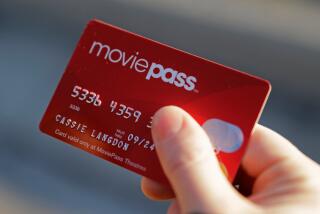SEC Files Civil Lawsuit Accusing Ex-Sunbeam Officials of Fraud
- Share via
WASHINGTON — Federal securities regulators Tuesday accused former top executives at Sunbeam Corp.--including former Chief Executive Albert Dunlap--of financial fraud that cost investors billions of dollars.
The Securities and Exchange Commission accused Dunlap and Sunbeam’s former chief financial officer, Russell Kersh, of trying to create the illusion that the ailing maker of Mr. Coffee machines and other small appliances was successfully restructuring itself to facilitate its sale in 1998.
“Public investors, ranging from individuals to investment funds, who bought and held Sunbeam’s stock in anticipation of a true turnaround lost billions as a result of the scheme,” the SEC said in the complaint filed in federal court in Miami.
Sunbeam in 1996 hired Dunlap, a corporate turnaround specialist who has earned the nickname “Chainsaw Al” because of his reputation for ruthless cost cutting, to restructure the company.
Dunlap and Kersh professed their innocence and said they owned Sunbeam stock and never sold a share despite the potential lucrative profits.
“I am outraged that the SEC has chosen to bring these baseless charges against me, and I intend to defend myself vigorously,” Dunlap said in a statement, echoed by Kersh. “The accusations made against me by the SEC are totally false.”
The 104-year-old Sunbeam in February filed for protection from its creditors in U.S. Bankruptcy Court. A spokesman for the company was not immediately available for comment.
Also charged in the SEC’s civil lawsuit were former Sunbeam Controller Robert Gluck, former Vice Presidents Donald Uzzi and Lee Griffith, and Arthur Andersen partner Phillip Harlow.
The SEC is seeking civil penalties and to permanently bar the accused from becoming officers or directors of any public company.
In Florida, Sunbeam is facing class-action lawsuits stemming from the drop in its stock price and the executives’ action. Dunlap is expected to be questioned this week in the suit, which is expected to go to trial in January.
Arthur Andersen, the company’s outside auditing firm, agreed in April to pay $110 million to settle claims related to the allegations of fraudulent reporting and accounting but did not admit fault or liability.
Company officials charged in the SEC civil suit allegedly created recorded revenue on contingent sales, accelerated sales from later periods into the present quarter and used improper bill-and-hold transactions.
Those actions helped create the false picture that Sunbeam had significant revenue growth--$60 million more than deserved in 1997--and was rapidly turning around, the SEC said in the suit.
By March 1998, with Dunlap at the helm, Sunbeam shares hit their apex though corporate executives were trying to conceal the company’s mounting financial problems while still looking to finance acquisitions, the SEC said.
An internal investigation began in June 1998 after media reports questioned the company’s performance and led to the termination of Dunlap, Kersh and others. In the end, Sunbeam had to revise its financial statements from the fourth quarter of 1996 to the first quarter of 1998, the SEC said.
The lawyer for Harlow said his client will fight the charges.
“The SEC’s allegations reflect a professional disagreement about the application of sophisticated accounting standards,” lawyer Vince DiBlasi said. “They are in no way indicative of fraud.”
More to Read
Inside the business of entertainment
The Wide Shot brings you news, analysis and insights on everything from streaming wars to production — and what it all means for the future.
You may occasionally receive promotional content from the Los Angeles Times.










